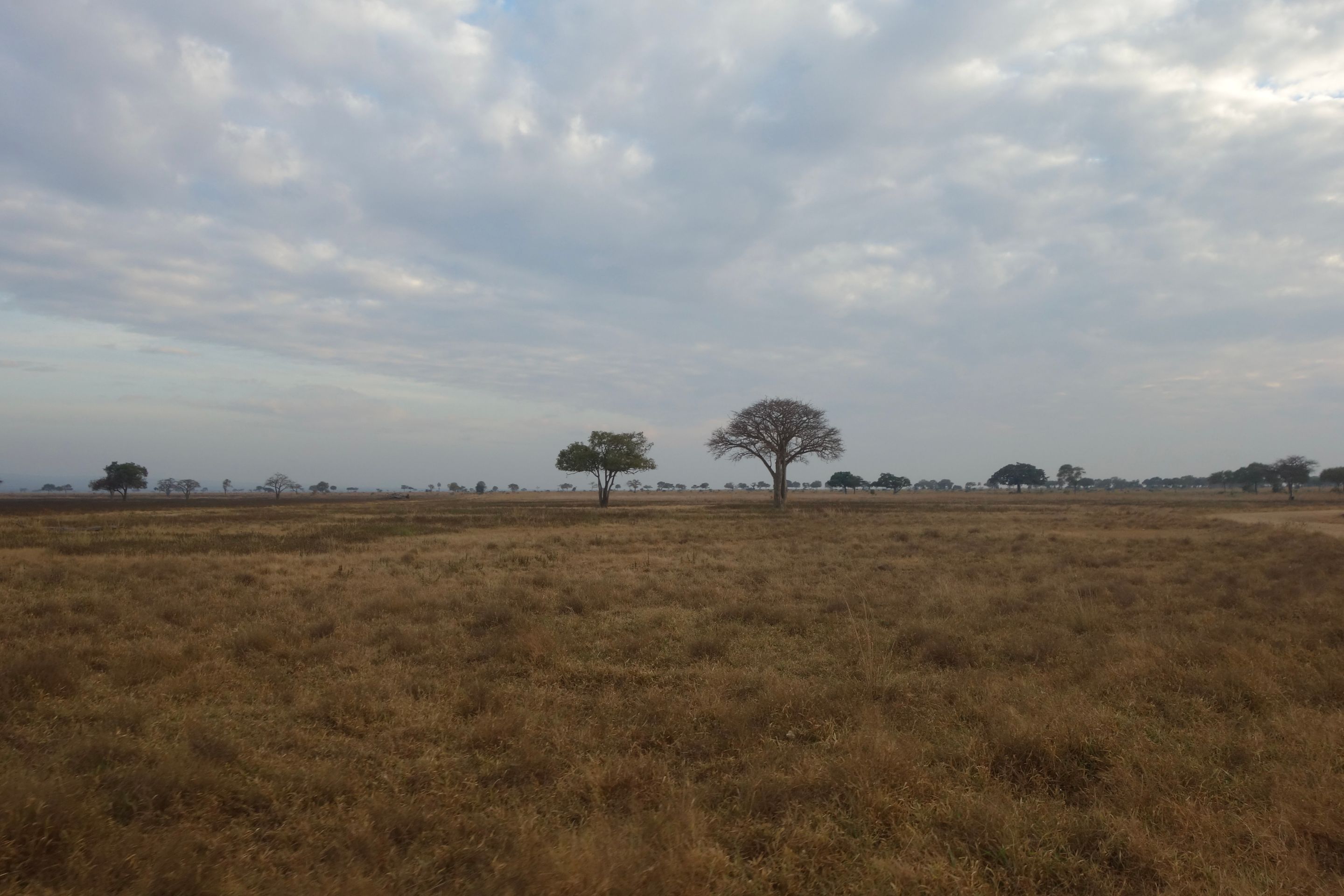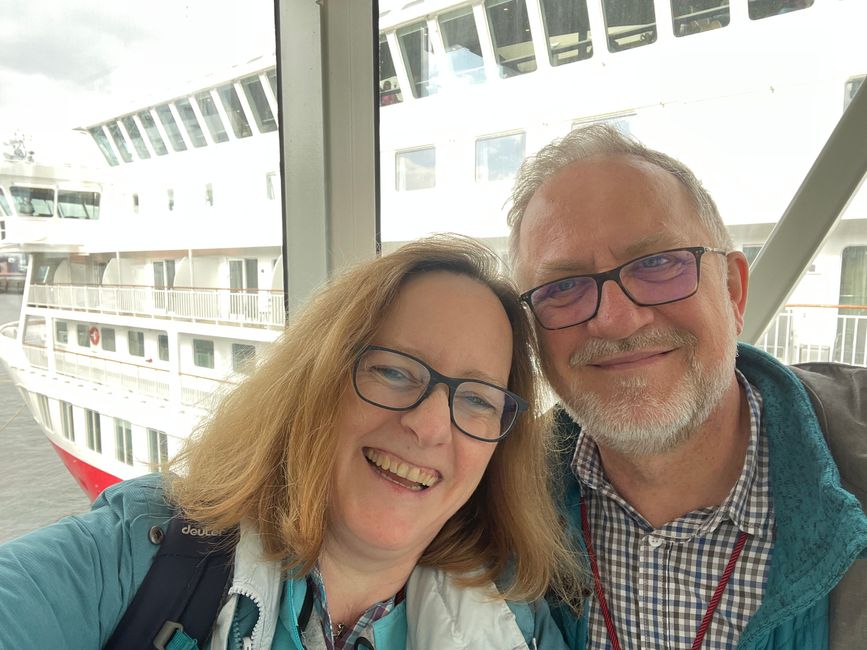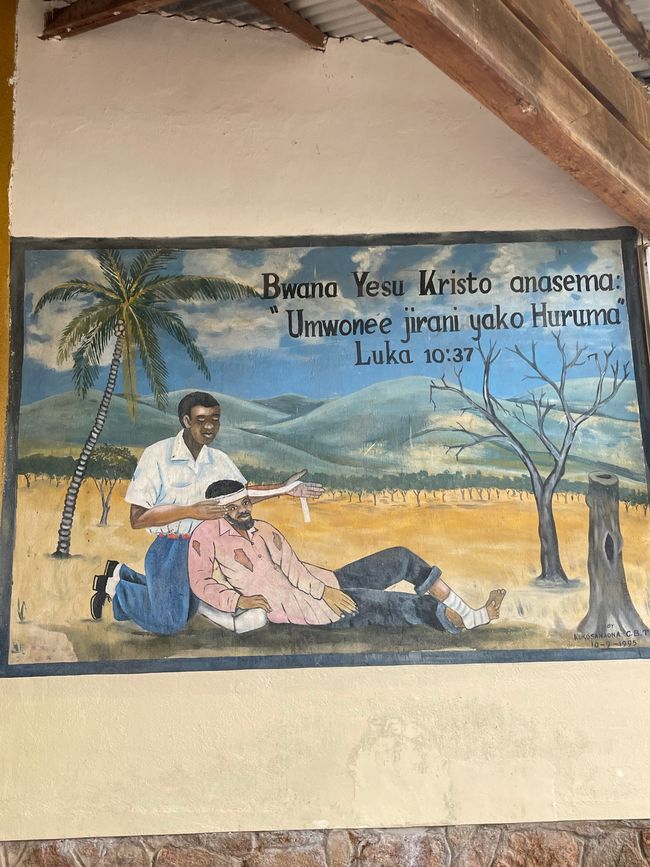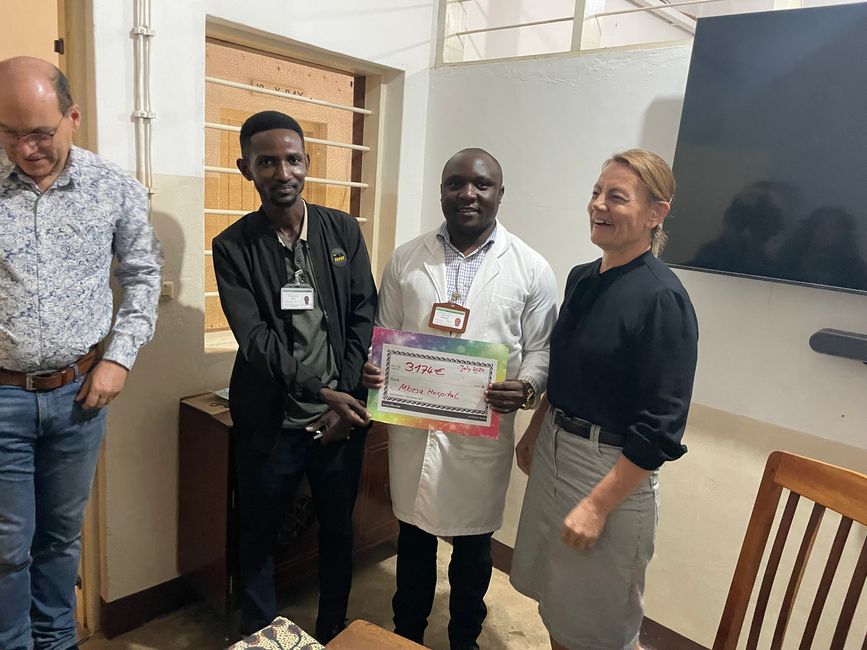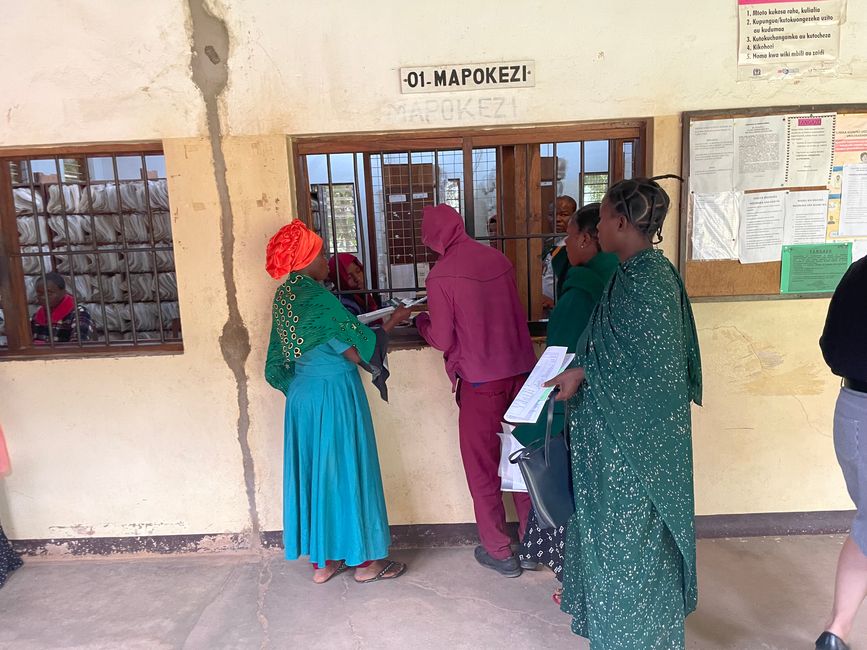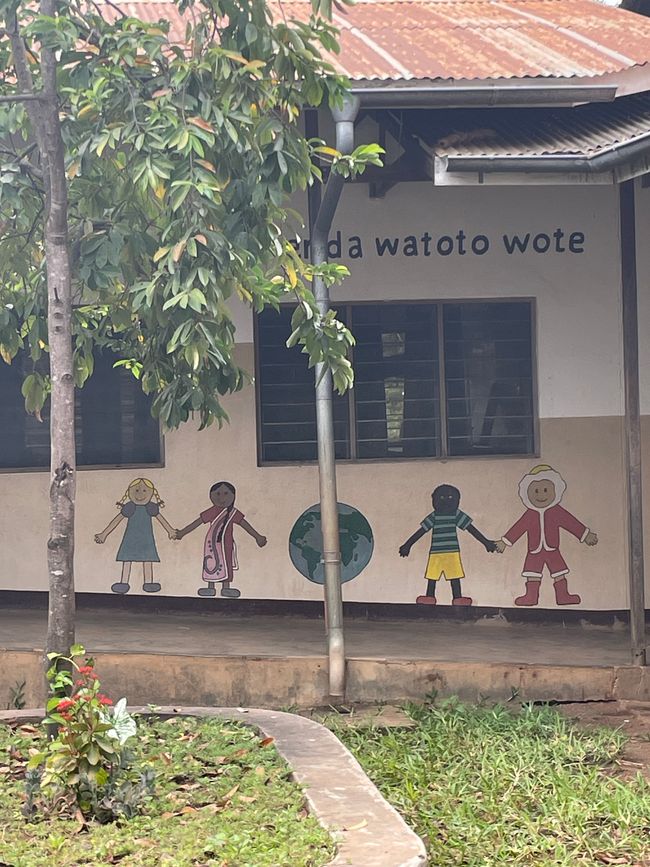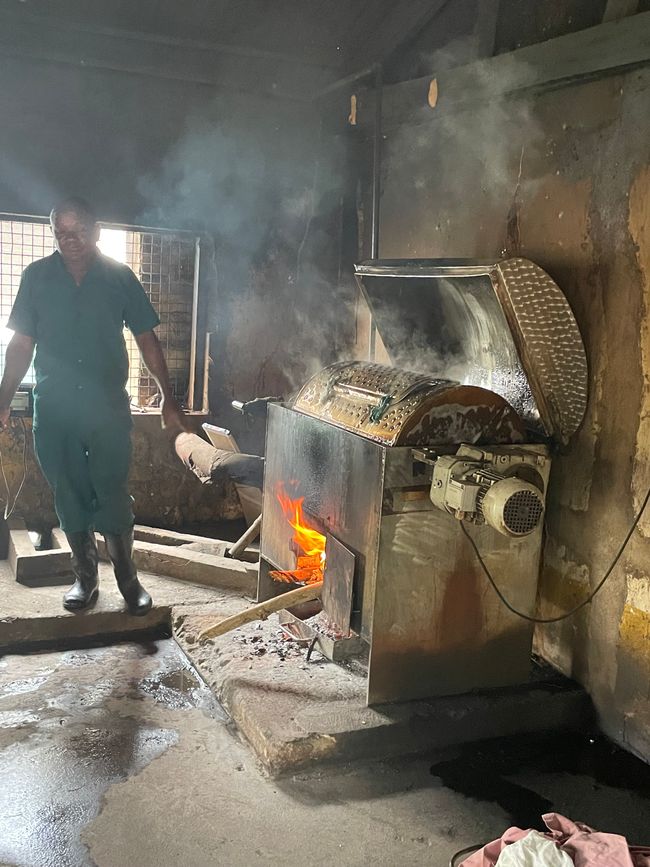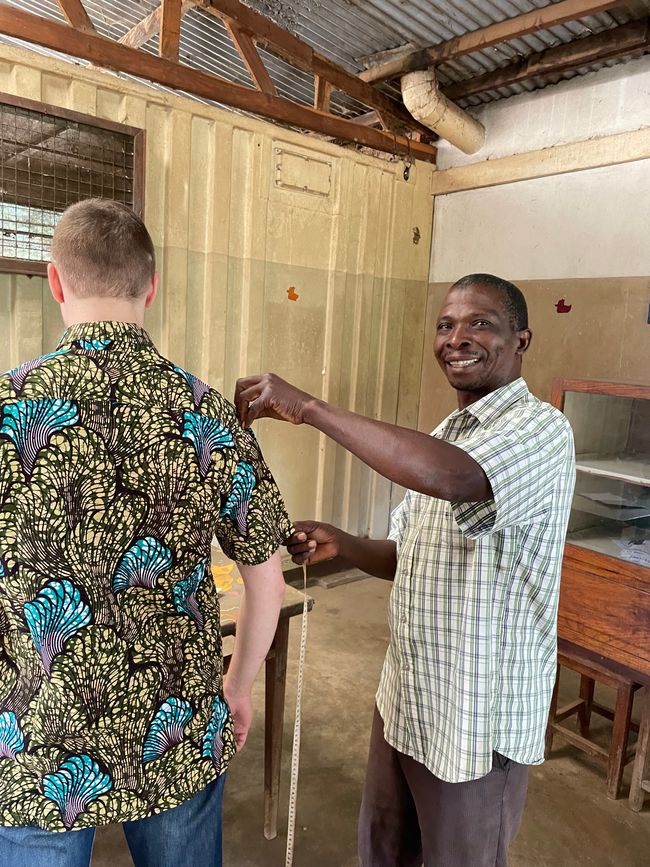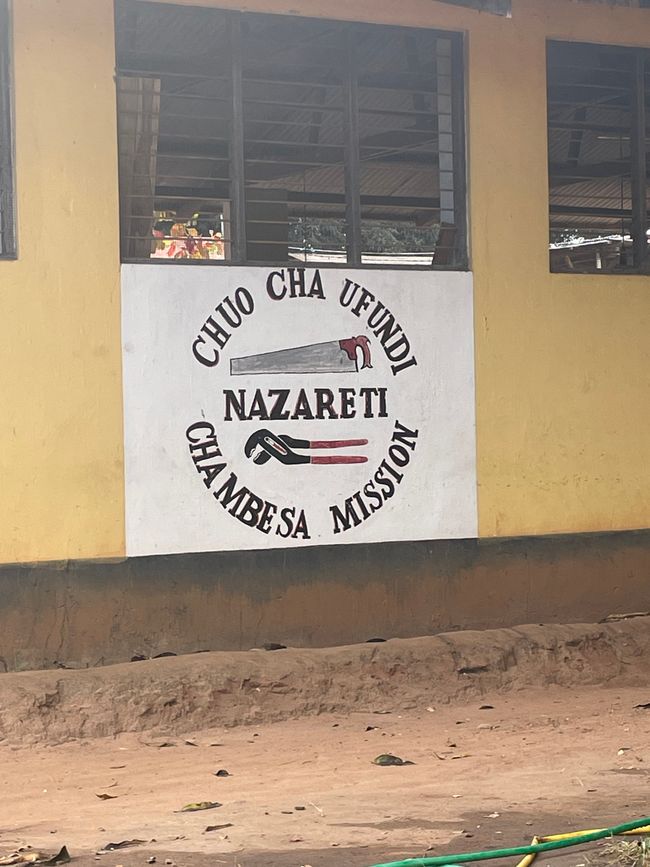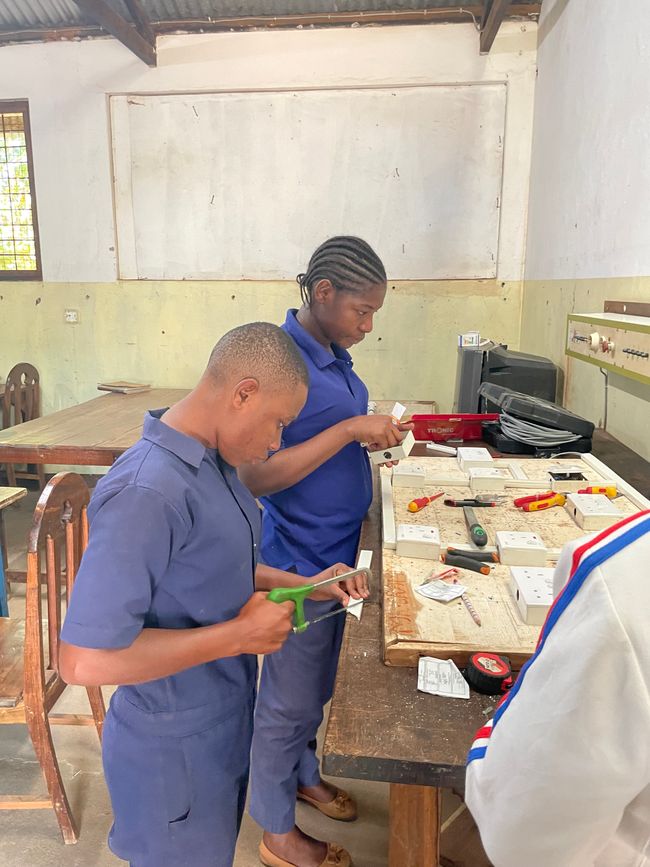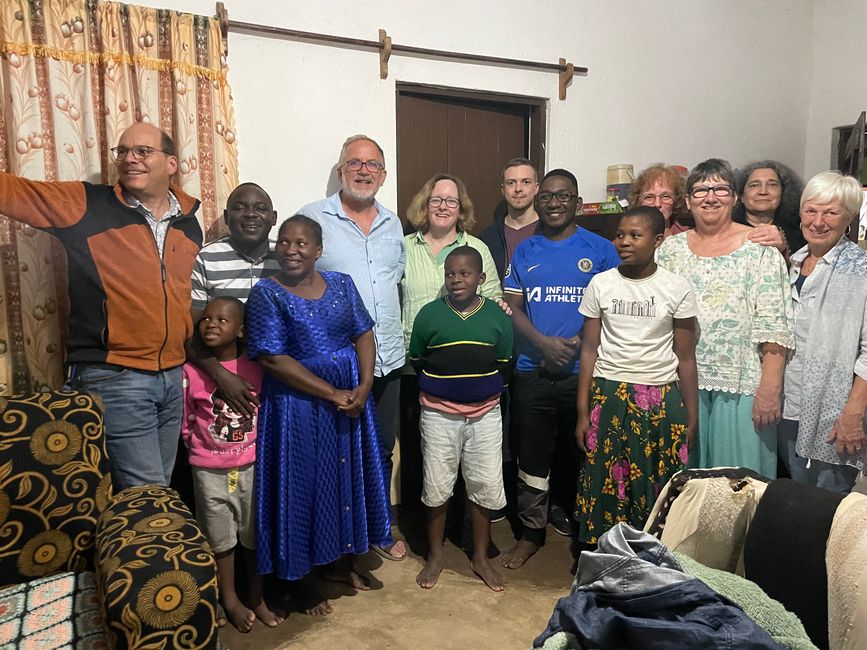Mbesa 1 - a bouquet of visits
Diterbitake: 24.07.2024
Langganan Newsletter
Time for relationship and appreciation: Each visit begins with the leader, possibly other individuals, introducing themselves to us and each of us introducing ourselves, explaining our connection to this work, and greeting our communities. The guestbook is also part of the mandatory ritual. This runs through the entire tour, even if I don't narrate it in detail every time.
In Mbesa, we start the morning with a visit to the hospital, meet the chief doctor, who along with Elli as the leader and the administrative chief forms the management team. The hospital was founded around 1959 and was the reason or condition for starting a Christian work. The opportunities, both in terms of education and training, as well as the technical and governmental conditions, have changed significantly over the decades. Today, many well-educated Tanzanians work there, but there are also government programs, e.g., to purchase specific medical equipment for as many villages as possible. This creates a certain competition for skilled workers (and the government can pay more), on the other hand, these devices are sometimes there without anyone being able to operate them…
So, a private clinic always faces new challenges.
At the moment, the sponsor is still the mission, the handover to the community association is in progress, but it is a comprehensive and costly action (alone contractually: severances, new contracts ...) - including intercultural challenges.
Further impressions in keywords: Paying via mobile phone - only a few insured - no food available, relatives bring it - depending on the person, many people come to the sick - Isolation station less TBC today (medications can also be taken at home), especially HIV - many births, many male midwives (part of general nursing training) - 150 per month - Pastor Magonga is the hospital chaplain here, together with a team they visit the patients, pray with them, and talk.
Then we move on to the technical supply: Generators, solar panels, and batteries primarily provide for the hospital, now in addition to the state electricity supply. Drinking water is obtained from groundwater and is therefore potable even for Europeans. More on this in a separate post.
In between, during lunch break, a tailor comes to measure us for making shirts and other desired items from the fabric we bought in Mtwara.
Next, we visit the craft school. Here, training is offered as locksmiths, automotive mechanics, electricians, carpenters, and a seamstress. Until a few years ago, there was also a home economics school for girls where sewing was included, but it was closed because it did not provide an official certification. Instead, there are several girls among the electricians.
The young people also live in the boarding school. A good starting opportunity in professional life, especially since with the completion they receive their own toolbox or sewing machine and are not dependent on employment.
Scarcely back from the visits, we are already on the move: this evening we are invited to Magonga and his family: family introduction. Not every child is a biological one, the daughter is his niece, who is currently living with them, the elder ‘son’ a felt, spiritual son… Anyway, a lively and open-minded talented young man. Before the meal, our hands are washed with mobile water, as usual, there is rice, a red, flavorful but not spicy sauce with potatoes and chicken. Vegetables on the side, the leaves of the sweet potato taste somewhat like spinach.
An impressive evening!
Langganan Newsletter
Wangsulan
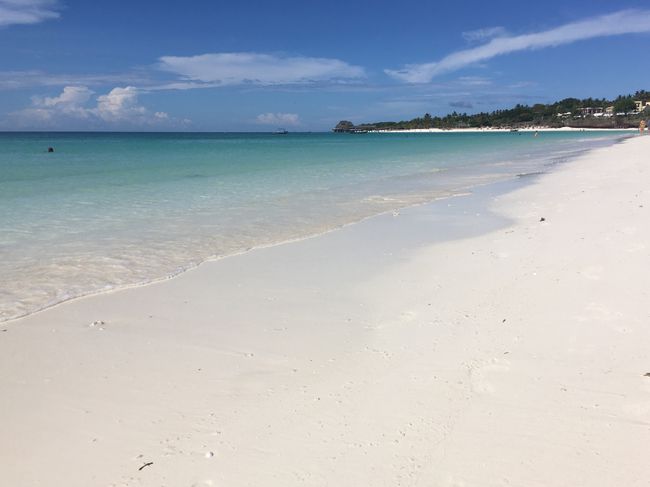
Laporan perjalanan Tanzania
